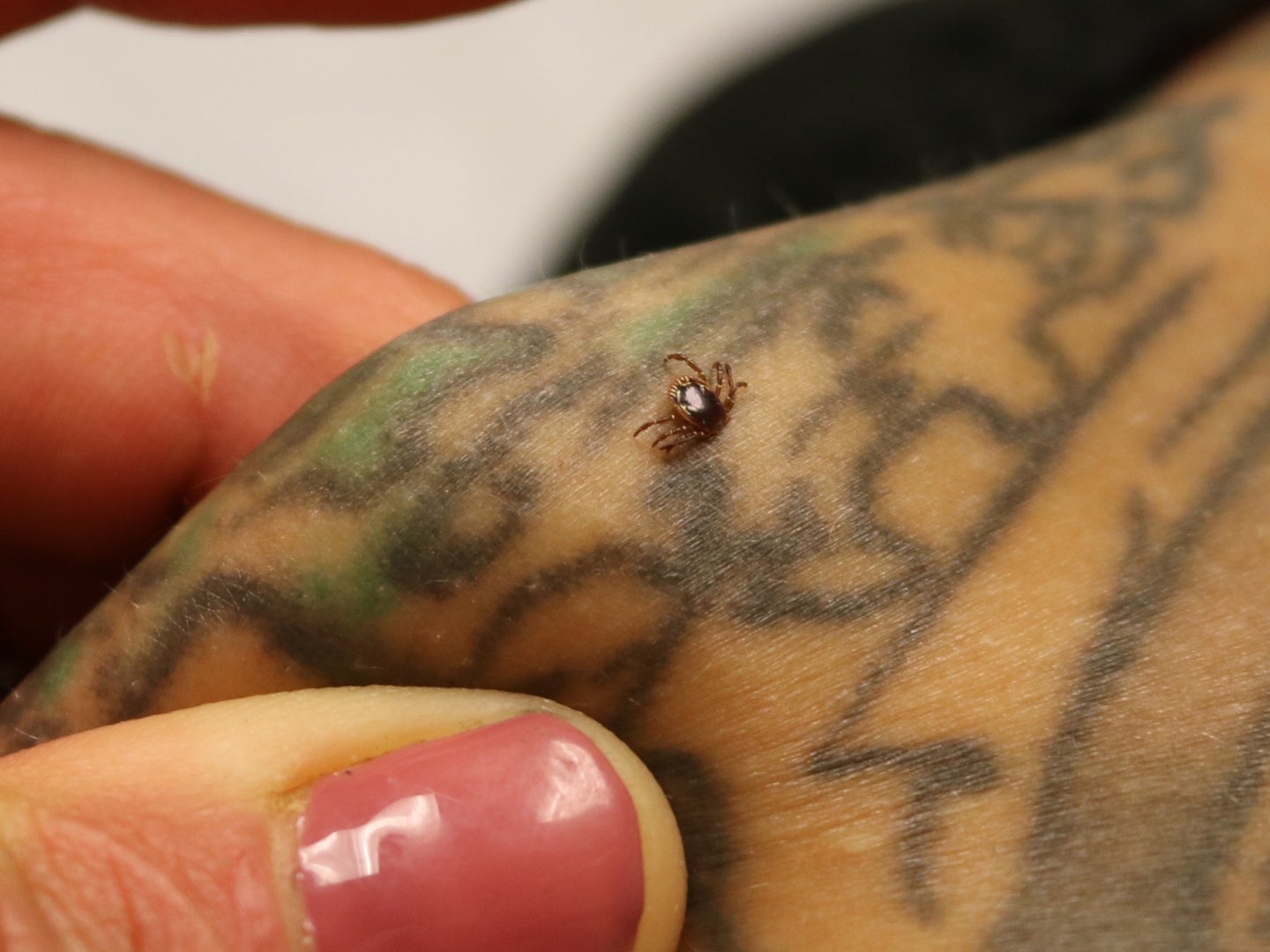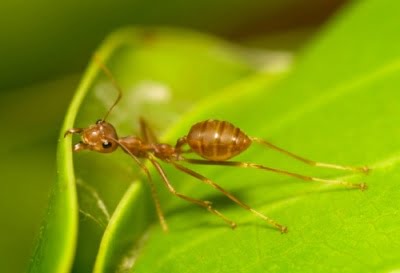Yes, ants can cause allergies due to the proteins in their bodies and venom they inject when biting. Now, let’s delve deeper into the subject.
Ants are small insects that can be found in various environments. While they may be harmless to most people, for some individuals, ants can be a source of allergies. This is because ants contain proteins in their bodies that can trigger an allergic reaction in susceptible individuals.
Additionally, certain species of ants can inject venom when they bite, which can worsen the allergic response. Symptoms of ant allergies may include itching, swelling, redness, and even difficulty breathing. In severe cases, an allergic reaction to ants may require immediate medical attention. Understanding the potential risks associated with ants can help individuals with allergies take necessary precautions to avoid exposure.
Ant Allergies
Ant allergies can cause symptoms such as itching, hives, and swelling. Ant stings can lead to severe allergic reactions, including anaphylaxis. Allergies to ants are not as common as those to other insects, but they can still cause discomfort and require proper management.
Ant allergies can be a concern for many people, as these tiny insects can trigger reactions in some individuals. Understanding the symptoms and common types of ant allergies is crucial for managing these conditions effectively.
Symptoms Of Ant Allergies
Ant allergies can manifest in various ways, with symptoms ranging from mild to severe. Common signs of ant allergies include itchy skin, hives, swelling, difficulty breathing, and stuffy or runny nose. In more severe cases, an ant sting can lead to anaphylaxis, a life-threatening allergic reaction.
Common Types Of Ant Allergies
When it comes to ant allergies, there are several common types that people may experience. These include fire ant allergy, which is often characterized by intense itching, redness, and swelling at the sting site. Another common type is harvester ant allergy, which can cause severe pain, redness, and swelling, often leading to pustules at the sting site.
Overall, understanding the symptoms and types of ant allergies is vital for recognizing and managing these conditions effectively. If you suspect an ant allergy, seeking medical advice is essential to ensure proper diagnosis and treatment.

Credit: www.shutterstock.com
Identification Of Ant Allergies
Ant allergies can be a real problem, causing skin irritation and respiratory issues. Identifying these allergies is crucial for effective treatment and prevention.
If you’ve been experiencing allergy symptoms such as sneezing, itchy eyes, or a runny nose, you may be wondering if ants could be the culprit. Identifying ant allergies is crucial in order to find appropriate treatments and prevent further allergic reactions. In this section, we will explore how to diagnose and test for ant allergies.
Diagnosing Ant Allergies
When it comes to identifying ant allergies, it is essential to consult with a healthcare professional who specializes in allergies. They will evaluate your symptoms and medical history to determine if ants may be causing your allergic reactions. During the diagnostic process, they may use a combination of methods, including:
- Skin prick test: This test involves placing a small amount of ant allergen extract on your skin and then pricking it with a tiny needle. If you are allergic to ants, you will develop a small raised bump or a red, itchy spot at the test site.
- Blood test: A blood test can measure the presence of specific antibodies called IgE, which your body produces in response to allergens. Elevated levels of ant-specific IgE antibodies may indicate an ant allergy.
- Medical history: Your healthcare provider will ask you about your exposure to ants and your symptoms. They may also inquire about any previous allergic reactions you have had.
Testing For Ant Allergies
In addition to the diagnostic methods mentioned above, your healthcare provider may conduct further tests to confirm an ant allergy and determine the severity of your reaction. Some of the tests they may perform include:
- Antigen-specific IgE testing: This blood test measures the levels of specific IgE antibodies to ants, providing more detailed information about your sensitivity to ant allergens.
- Oral food challenge: In some cases, your healthcare provider may recommend an oral food challenge, where you consume small amounts of ant extract under medical supervision to observe any allergic reactions.
- Intradermal test: This type of test involves injecting a small amount of diluted ant allergen extract just beneath the skin to detect a localized allergic reaction.
Once your healthcare provider has successfully identified and confirmed your ant allergy, they can develop an appropriate treatment plan tailored to your specific needs. Remember, proper diagnosis is essential in managing ant allergies and ensuring your overall well-being.
Prevention
Ants can cause allergies in some individuals. It is important to take preventive measures to avoid ant infestations and reduce the risk of allergic reactions.
Ant Allergy Management Tips
Allergies caused by ants can be highly uncomfortable and distressing. Prevention is key to avoiding allergic reactions and ensuring a safe home environment. Here are some simple but effective ant allergy management tips to help you reduce your exposure to ants and keep allergies at bay.
Reducing Exposure To Ants
When it comes to ants, prevention is better than cure. By taking a few proactive steps, you can significantly reduce your exposure to ants and minimize the risk of allergies. Here are some ways to keep ants away from your home:
- Keep your house clean and tidy:
Diligent cleanliness can discourage ants from entering your home. Regularly sweep, mop, and wipe down surfaces to remove any food sources that may attract ants.
- Seal entry points:
Ants can enter your house through even the tiniest cracks and crevices. Ensure all doors and windows are properly sealed to prevent their entry.
- Store food securely:
Ants are attracted to food, so make sure all food items are stored in airtight containers. This will deny ants access to their favorite snacks and discourage them from infiltrating your pantry.
- Dispose of garbage properly:
Avoid leaving food scraps or garbage exposed, as this can attract ants. Use tightly sealed garbage bins and empty them regularly to keep ants at bay.
- Remove standing water:
Ants need water to survive, so fix any leaks in your home and promptly remove any standing water. This will make your home less inviting to these pesky insects.
- Keep outdoor areas tidy:
Trim bushes and trees that may provide easy access for ants to enter your home. Regularly clean up any food or drink spills in your outdoor spaces to avoid attracting ants.

Credit: www.popsci.com
Treatment
When it comes to the treatment of ant allergies, it’s important to be proactive in managing symptoms to prevent severe reactions. This involves a combination of medications and emergency response measures.
Medications For Ant Allergies
If you have been diagnosed with ant allergies, your healthcare provider may prescribe antihistamines to alleviate mild to moderate allergic reactions. Nasal corticosteroids can also be recommended to reduce nasal inflammation and congestion caused by ant allergies. In some cases, oral corticosteroids may be necessary to control severe symptoms.
Emergency Response For Severe Reactions
It’s crucial to have an epinephrine auto-injector on hand if you are at risk of severe ant allergies. In the event of a severe allergic reaction, prompt administration of epinephrine can be life-saving. If you experience symptoms such as difficulty breathing, tightness in the throat, or a sudden drop in blood pressure, seek immediate medical attention and use the auto-injector as directed.
Cross-reactivity
Cross-reactivity occurs when the proteins in ant venom trigger an allergic response similar to that caused by other allergens. This means that people who are allergic to ants may also experience allergic reactions to other related insects or substances. Understanding cross-reactivity is crucial in managing and preventing allergic reactions caused by ants.
Potential Cross-reactions
Ant allergies can trigger cross-reactive responses with other insect allergens, leading to similar symptoms. Individuals with ant allergies may experience reactions from multiple insect bites due to this cross-reactivity. It is vital to be aware of these potential cross-reactions to effectively manage allergies.
Relation To Other Insect Allergies
Ant allergies are interconnected with responses to other insect stings. Cross-reactions are possible between ant venom and the venom of bees, wasps, or hornets.
Potential Cross-reactions
Insect allergies are not isolated; individuals allergic to ants could also react to stings from bees, wasps, or hornets. This cross-reactivity manifests in similar allergic responses to different insect bites.
Research And Studies
Recent research and studies suggest that ants may trigger allergic reactions. People with allergies to ant venom may experience symptoms such as skin redness, swelling, and itchiness when in contact with ants, highlighting the importance of understanding potential allergens in our environment.
Recent Findings On Ant Allergies
Ongoing Research For Ant Allergy Treatments
Research and Studies show ants can indeed cause allergic reactions in some individuals.
Recent Findings On Ant Allergies
A recent study revealed the severity of ant allergies and the need for better treatments.
- Ants can trigger allergic symptoms like hives and respiratory issues.
- Ant venom plays a significant role in allergic reactions.
Ongoing Research For Ant Allergy Treatments
- Researchers are exploring new treatments for ant allergies.
- Immunotherapy shows promise in desensitizing individuals to ant allergens.

Credit: www.medicalnewstoday.com
Frequently Asked Questions Of Can Ant Cause Allergies
Can Ants Cause Allergies?
Ants can trigger allergic reactions in some people. The proteins found in ant saliva or venom can cause itching, swelling, redness, hives, and even anaphylaxis in sensitive individuals. It’s important to seek medical attention if you suspect an ant allergy.
What Are Common Symptoms Of Ant Allergies?
Symptoms of ant allergies may include itching, redness, swelling, hives, and in severe cases, difficulty breathing, chest tightness, or low blood pressure. It’s essential to recognize these signs and seek prompt medical help if experiencing any of them.
How Can One Prevent Ant Allergies?
To prevent ant allergies, avoid contact with ants, keep food sealed, clean up spills promptly, seal cracks where ants can enter, and use ant baits or repellents. If you have a known ant allergy, carry an epinephrine auto-injector and wear a medical alert bracelet.
Are There Specific Ant Species That Trigger Allergies?
Fire ants, harvester ants, and carpenter ants are common culprits of ant allergies due to their venomous stings or bites. These species can cause severe allergic reactions in susceptible individuals, making it crucial to identify and avoid contact with them.
Conclusion
In final words, understanding the link between ants and allergies is crucial. Taking steps to prevent ant infestations can reduce the risk of allergic reactions. By maintaining a clean environment and seeking medical advice when necessary, you can safeguard your health and well-being from potential ant allergy symptoms.

I’m MD Tanvir, and I bring years of expertise gained from working closely with pest control companies to the forefront. My journey in the industry has inspired me to launch Bug Battler, a platform aimed at equipping people with the know-how to combat pests autonomously. Through Bug Battler, I aim to empower individuals with practical insights to tackle pest infestations effectively.

